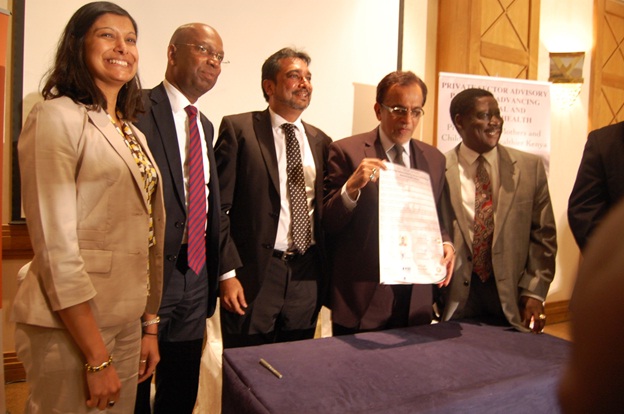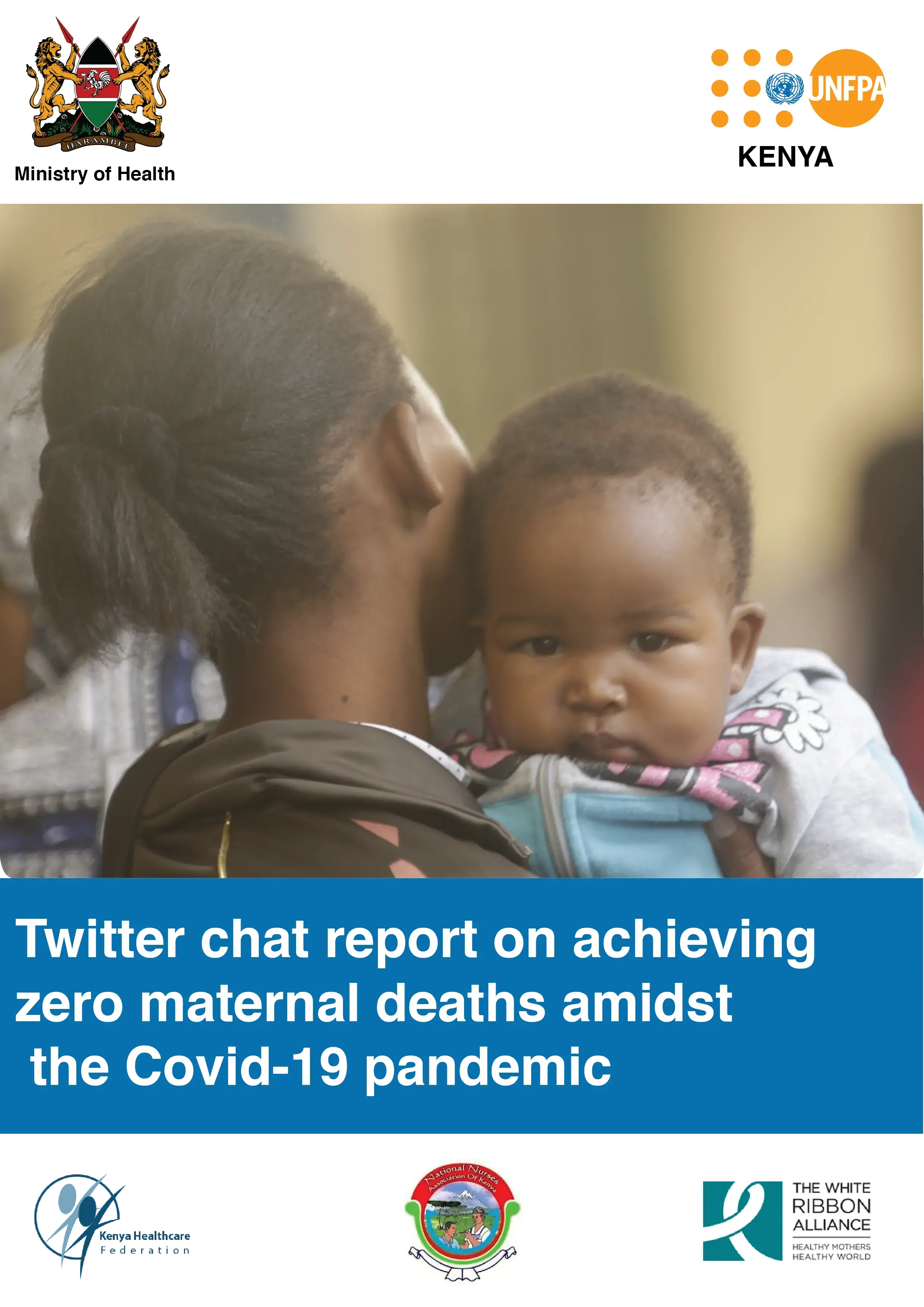The Government of Kenya today endorsed a private sector initiative whose objective is to prevent the death of women while giving birth. Dubbed the Private Sector Advisory Panel on Advancing Maternal and Newborn Health (PSAP-MNH) in Kenya, the members signed a Letter of Intent as commitment to the cause of improving the status of maternal health in Kenya.
The Ministry of Health has lauded a new UNFPA-led initiative by Kenya's private sector that aims to reduce the mortality rate of mothers and newborns.
At a glamorous breakfast launch at Hotel InterContinental in Nairobi, the UNFPA-led Private Sector Advisory Panel on Advancing Maternal and Newborn Health in Kenya demonstrated one quick-win solution that will make the newly introduced free maternal healthcare services accessible to all women, irrespective of their location.
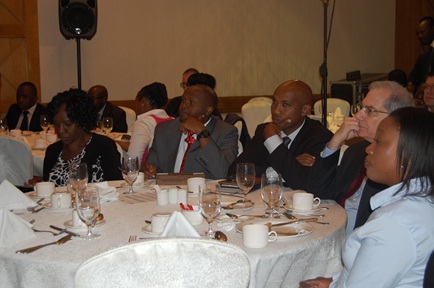
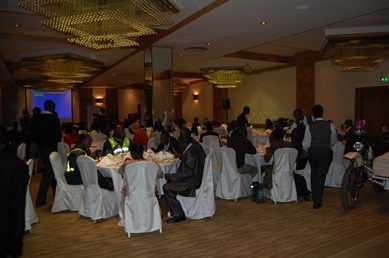
This quick-win solution would see the introduction of motorcycle ambulances and mobile immunization clinic units as they would meet the challenge of providing primary care to isolated women and their families. The units are designed to reach areas that may be inaccessible to all but four-wheel drive vehicles, but at a fraction of the cost.
The mobile ambulance and immunization clinic units, which are designed by e-Ranger, are based on a successful and durable ambulance platform. They have been specifically designed to cater to rural populations, especially those in remote areas that suffer from poor infrastructure and access to health centers
.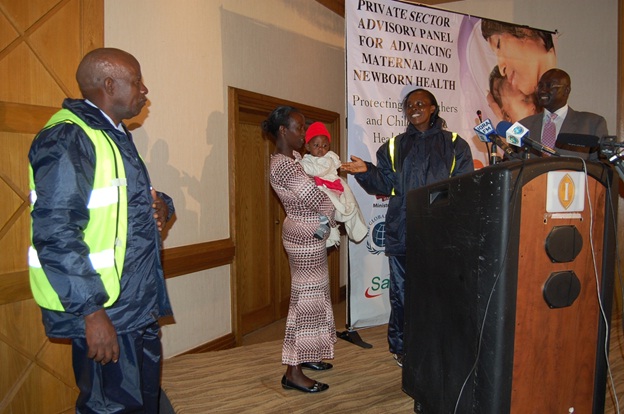
The self-contained mobile clinics can transport two healthcare workers into the field and be set up at a point of use in a few minutes. The unit can be used to provide immunization, post-natal checks and drug distribution among other services.
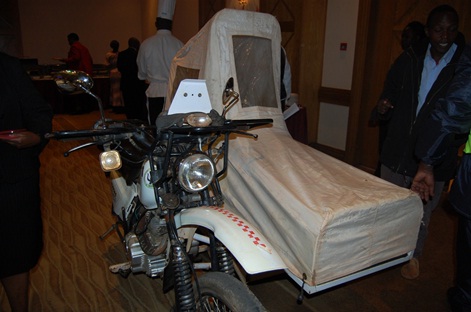
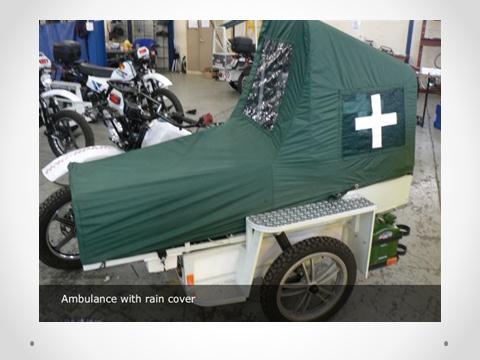
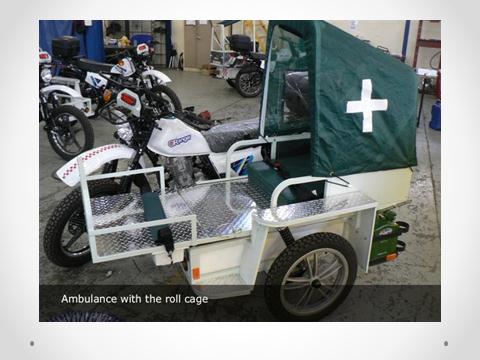
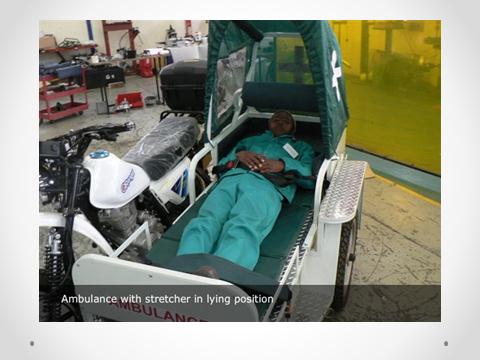
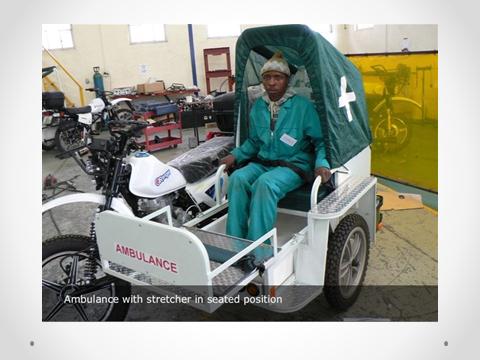
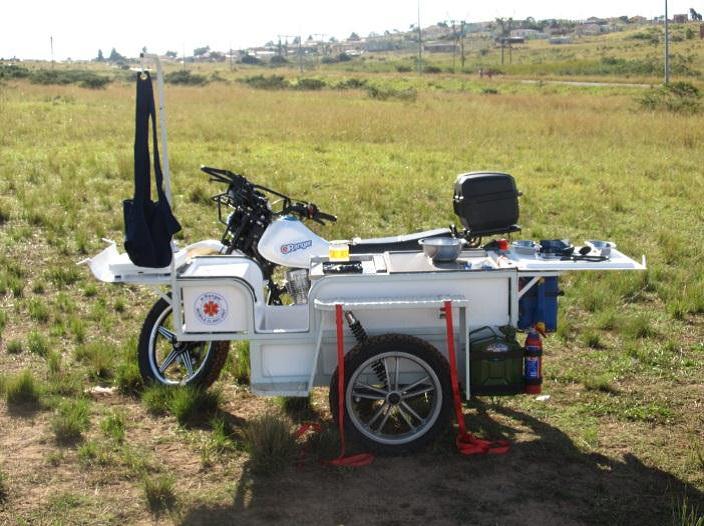
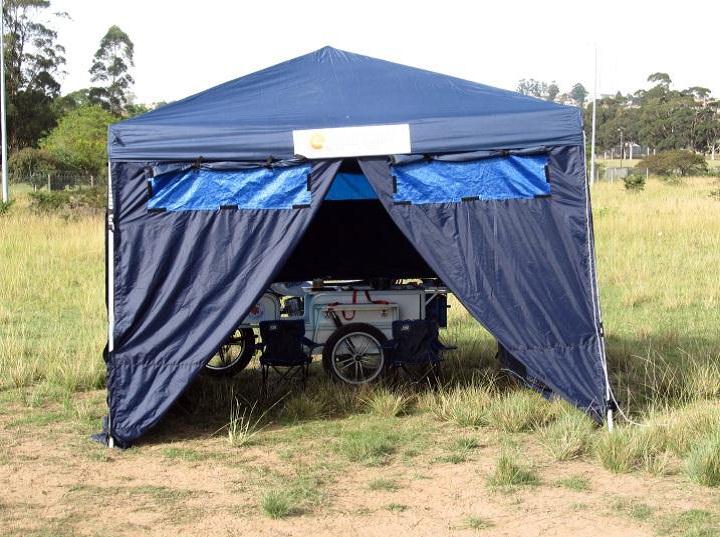
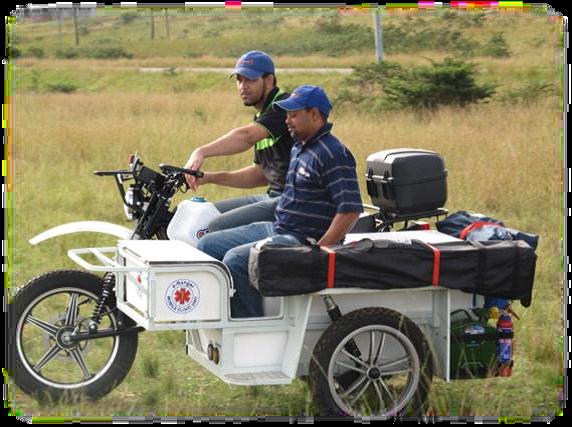
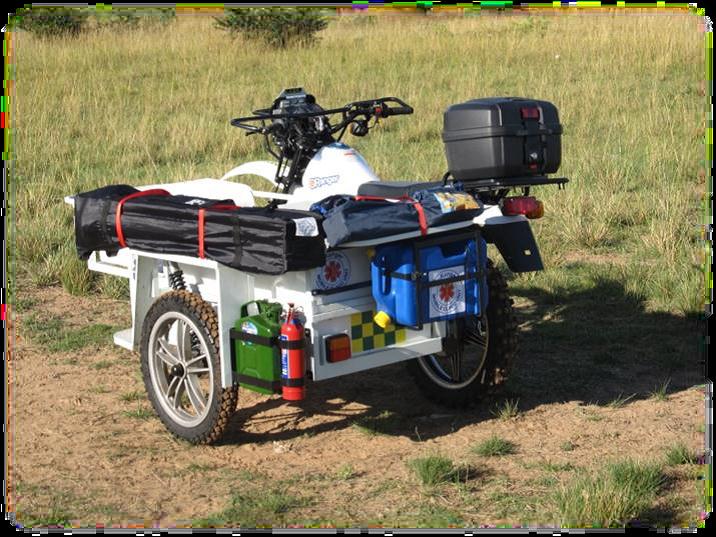
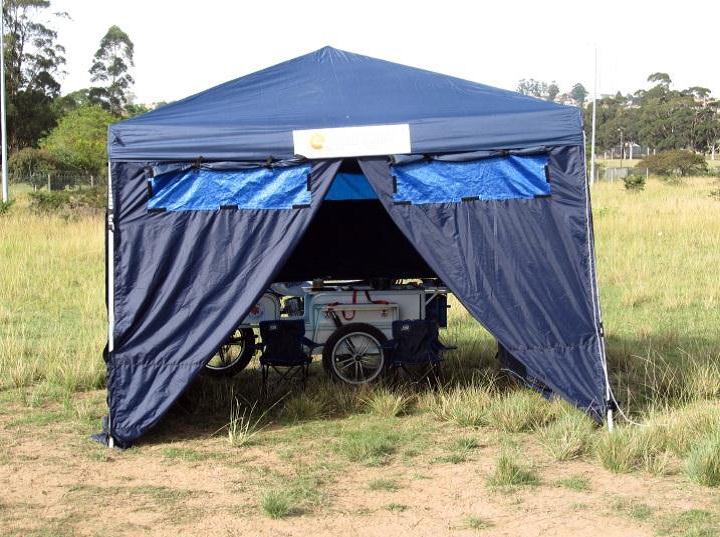
Statistics indicate that in Kenya, about 8,000 women die each year from maternal-related complications. In other words, a woman dies every two hours while giving birth. At the same time, a new born loses its life every 20 minutes. Among those who survive, hundreds of mothers and newborns suffer severe injuries because they were not promptly attended to either due to poverty, lack of access and poor quality care. As a result, many women are unable to realize their full potential, are unable to support their families and hence continue to suffer in poverty.
Evidence shows that many of these complications could have been avoided if the women were provided with additional nutrition during pregnancy, and if they had received treatment from well-equipped and skilled health professionals.
Other causes leading to Kenya's high maternal mortality rate include long distance to health facilities; few and overworked health professionals; poor or no equipment, essential medicine and medical supplies; poverty; lack of adequate transportation to health facilities; lack of information and awareness on the importance of seeking timely care during pregnancy; gender inequalities; cultural and religious barriers that obstruct women from seeking timely care; and poor service at the delivery point
The Cabinet Secretary of Health, Mr. James Macharia, through the Director of Public Health, Dr. S.K. Sharif, assured the private sector panel of government support and pledged the provision of necessary expertise, guidance and a conducive environment for national stakeholder engagement. Read his full speech here.
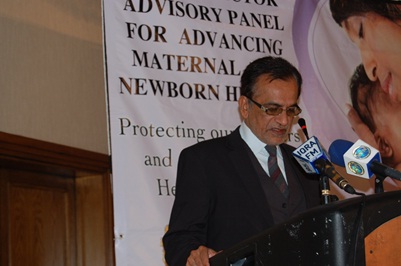
The Cabinet Secretary of Health then signed the Letter of Intent that immediately saw his endorsement as the panel's Patron.
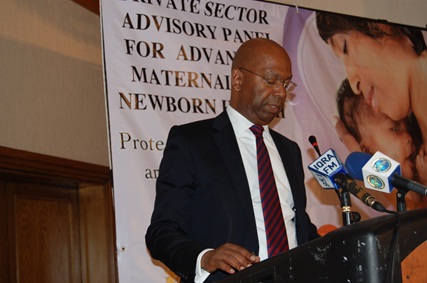
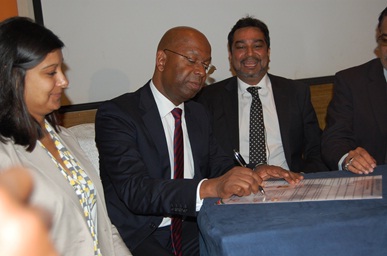
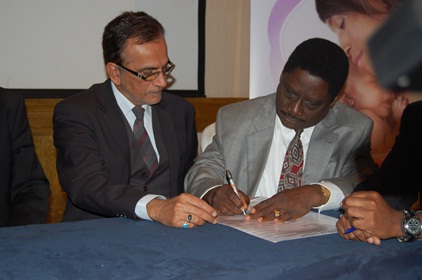
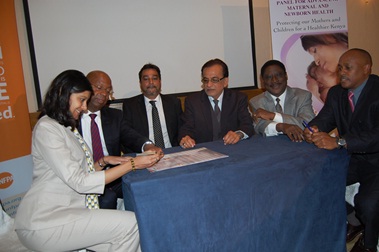
With the signing of the Letter of Intent, the panel members, led by Safaricom Ltd Chief Executive Officer, Mr. Bob Collymore who pledged to purchase four of the motorcycle ambulances, demonstrated their full commitment and support to advocate, mobilize and harness the necessary resources required to fight maternal and newborn death and morbidity in Kenya; and to promote a Kenya in which every pregnancy is wanted, every child birth is safe and every young person can make use of their full potential. See the duly signed Letter of Intent here.
The panel members, through its co-chair, Dr. Amit Thakker, called on all their colleagues in the private sector to join hands with them and advance, prioritize and mainstream maternal and newborn health throughout its employee welfare policies, common business practices and corporate social responsibility initiatives. Read his full speech here
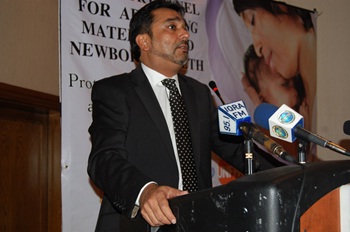
Explaining UNFPA's role in Kenya, the Representative (ad interim), Dr. Benjamin O. Alli, said the agency partners with Governments, other United Nations agencies, communities, NGOs, foundations and the private sector to raise awareness and mobilize the support and resources to achieve its mission.
He said UNFPA support in Kenya was provided in the context of the national planning strategy popularly known as Kenya Vision 2030, in line with the United Nations Development Assistance Framework (UNDAF). In addition, UNFPA supported national capacity with emphasis on reproductive health and rights, population and development, and gender equality.
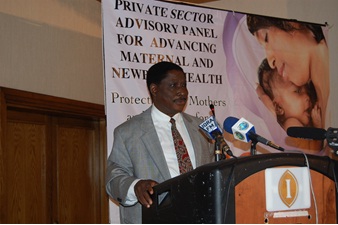
UNFPA works closely with the Ministries of Health and that of Devolution and Planning to improve the policy environment that promotes reproductive health and rights. UNFPA support to the national budget in 2013 alone stands at US$ 10 million (equivalent of Kshs.850, 000, 000) out of which US$8.5 million (Kshs.722, 500, 000) is for programs on Sexual and Reproductive Health. Read his full speech here.
